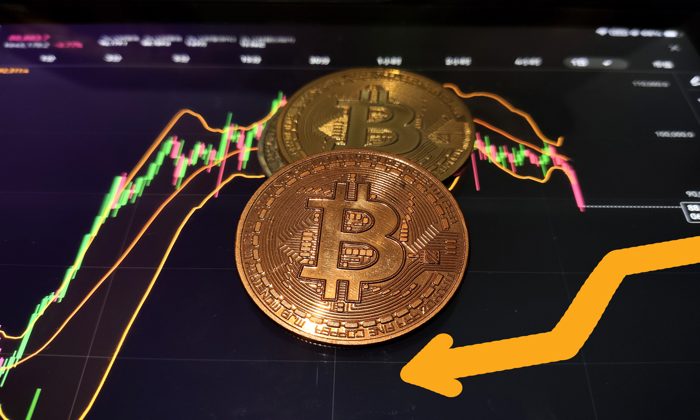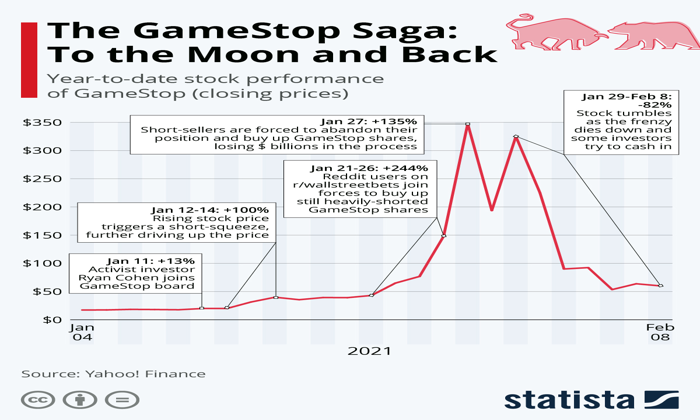President Trump’s cryptocurrency dealings have stirred considerable controversy, complicating the task of drafting effective crypto regulations in Congress. As multiple legislative proposals like stablecoin legislation and the STABLE Act emerge, Trump’s connections to meme coins and Dollar stablecoins have attracted both scrutiny and significant financial gains. House Financial Services Chairman Rep. French Hill recently pointed out that these dealings not only challenge regulatory efforts but also intertwine Trump’s personal financial interests with legislative priorities. Behind the scenes, the Trump family’s rapid crypto investments raise questions about the ethical implications of their financial maneuvers within this burgeoning market. With major initiatives in the crypto space at stake, the intersection of Trump’s business dealings and regulatory development is shaping the future landscape of digital assets in America.
The involvement of former President Trump in the world of digital currencies has sparked a heated discussion about the future of cryptocurrency regulation. As lawmakers strive to establish a coherent framework, Trump’s endeavors with speculative crypto assets and-backed stablecoin initiatives are garnering both attention and criticism. The delicate balance of implementing sound crypto policies is being tested by the intertwining of personal finances and public service, particularly through the lens of influential figures like Trump. This dilemma highlights the complexities surrounding emerging technologies and the varied strategies lawmakers must consider to foster a safe yet innovative financial environment. Ultimately, the unfolding narrative around Trump’s digital ventures could catalyze significant changes in how cryptocurrencies are governed in the United States.
Trump’s Cryptocurrency Dealings: A Complicated Landscape
President Donald Trump’s ventures into the world of cryptocurrency, particularly with his dealings in meme coins and stablecoins, have introduced complexities into the evolving regulatory framework of the crypto industry. Rep. French Hill, chair of the House Financial Services Committee, emphasized that these personal ventures have made it increasingly difficult for lawmakers to draft effective legislation that addresses the needs and concerns of the digital asset sector. As Trump expands his cryptocurrency portfolio at a rapid pace, including launching new blockchain projects linked to personal financial interests, the intersection of regulation and personal gain raises significant ethical questions and political ramifications.
Moreover, as Trump utilizes his political clout to influence crypto regulations, there is growing concern among lawmakers about the implications of his actions. His involvement with meme coins, often regarded as speculative and driven by trends, presents a stark contrast to the more stable, regulatory-focused initiatives like the STABLE Act and the GENIUS Act. These legislative efforts aim to bring clarity and stability to the crypto market, but Trump’s investments and endorsements of certain digital assets create a juxtaposition that complicates bipartisan support. This tension could potentially delay essential crypto legislation, affecting the industry’s overall growth and investment potential.
The Impact of Meme Coins on Crypto Regulation
Meme coins, which have surged in popularity due to their cultural significance and often humorous branding, are quickly becoming a focal point in discussions surrounding cryptocurrency regulation. These assets, favored by traders for their volatility and meme-inspired growth potential, pose unique challenges for lawmakers trying to create a stable regulatory environment. The SEC recently likened meme coins to collectibles, indicating the need for a distinct regulatory approach that recognizes their speculative nature while creating a framework that protects investors.
As Trump dives into developing his own meme coin, the ramifications of such actions extend beyond individual profit. The association between prominent figures and meme coins can lead to market manipulation and increased volatility, prompting regulatory bodies to reconsider their stance on these digital assets. The introduction of new meme coins can saturate the market, further complicating attempts to enforce sound regulations, especially when juxtaposed against initiatives aimed at supporting Dollar stablecoins that prioritize stability and value retention in the crypto ecosystem.
Examining Stablecoin Legislation Development Amid Trump’s Influence
Trump’s involvement in the development and promotion of stablecoins, particularly through his new ventures such as World Liberty Financial, has sparked a lively debate in Congress regarding the future of digital currencies. On one side, supporters argue that stablecoins can provide significant benefits by offering a more reliable alternative to volatile cryptocurrencies, potentially attracting traditional investors into the market. On the other hand, critics, including some Democrats, see Trump’s projects as potential risks, complicating bipartisan efforts to pass comprehensive stablecoin legislation.
The STABLE Act and the GENIUS Act represent crucial steps in establishing a regulatory framework that encompasses the unique aspects of stablecoins. These legislative measures aim to clarify the operational guidelines for stablepack assets while ensuring consumer protection. However, with Trump’s personal stakes intertwined with ongoing legislative discussions, some lawmakers argue that it presents a conflict of interest that could hinder the establishment of effective regulations designed to stabilize the market and protect consumers from potential pitfalls associated with these new financial products.
Bipartisan Support for Crypto Legislation: The Role of Trump’s Dealings
Despite the apparent divisions surrounding Trump’s business dealings in cryptocurrency, recent developments show a rare moment of bipartisan support in Congress for crypto legislation. The Senate Banking Committee’s approval of the GENIUS Act indicates a growing recognition of the need for regulatory clarity and oversight in the face of rapid crypto market expansion. As lawmakers grapple with the implications of both speculative assets like meme coins and stablecoins, their collective efforts aim to galvanize the crypto sector through improved legal frameworks, despite the complicated relationship stemming from Trump’s personal ventures.
However, this bipartisan momentum faces challenges as some members of Congress cite Trump’s personal cryptocurrency investments as a roadblock to advancing solid regulations. Critics argue that the intertwining of politics and personal finance can muddy the waters regarding legislative intent, especially when considering the metaphorical minefield of digital currencies. The need for transparent and effective regulation remains imperative, but the path forward must navigate through the uncertainty introduced by Trump’s active participation in the crypto space.
The Growing Influence of Crypto Investments in Trump’s Business Strategy
Trump’s strategic pivot towards incorporating cryptocurrencies into his business ventures highlights a broader trend in which traditional businesses seek to capitalize on the burgeoning digital asset market. The announcement of a partnership between Trump’s Truth Social platform and Crypto.com to launch crypto exchange-traded funds (ETFs) exemplifies this transition. This move not only illustrates the potential profitability of crypto investments but also raises questions about the regulatory implications and ethical considerations of such partnerships in light of the president’s influence.
Additionally, Trump’s sons, Eric and Don Jr., recently embarked on a Bitcoin mining operation, further solidifying the family’s position in the crypto landscape. As traditional businesses align themselves with cryptocurrency initiatives, the conversation around regulatory frameworks must adapt to accommodate these changes in business models. The increasing interdependence between Trump’s ventures and the evolving landscape of crypto investments signals a significant shift in both politics and finance, emphasizing the importance of sound regulatory measures that respond effectively to these developing realities.
The SEC’s Stance on Meme Coins and Its Implications
The SEC’s characterization of meme coins as resembling collectibles raises significant discussions about the regulatory classification of such assets. As the agency grapples with the dynamic landscape of cryptocurrency, the implications for investors who engage in trading these speculative assets can be profound. With the growing popularity of meme coins linked to influential personalities, including Trump, the SEC’s stance may evolve to provide stricter guidelines aimed at protecting investors in a volatile market.
Trump’s involvement with meme coins could further complicate the SEC’s ability to regulate these assets effectively. If meme coins are not categorized similarly to traditional securities, risks associated with trading them may not be as closely monitored, creating potential ramifications for the entire crypto ecosystem. Lawmakers and regulators must consider the balance between fostering innovation in the crypto space while ensuring that robust protections are in place amid market fluctuations driven by cultural trends and individual endorsements.
Challenges Ahead for Stablecoin Market Structure Legislation
As Congress prepares to discuss the stablecoin legislation, significant challenges loom on the horizon. The recent partisan debates surrounding Trump’s cryptocurrency dealings introduce a layer of complexity that may hinder swift legislative action. With the STABLE Act aiming to create a coherent regulatory framework, lawmakers must navigate varying opinions on the implications of new stablecoins entering the market while addressing concerns over Trump’s potential influence on the resulting policies.
These discussions not only focus on the immediate ramifications for Trump’s businesses but also examine the broader implications for the crypto markets at large. Ensuring that stablecoin regulations uphold a conducive environment for investment while mitigating risks associated with volatility remains a pressing challenge for legislators. As discussions advance in Congress, establishing a clear and unified approach to stablecoin legislation could pave the way for a resilient cryptocurrency ecosystem.
Navigating Executive Orders Impacting the Crypto Sphere
Trump’s recent executive orders concerning cryptocurrency reflect a significant shift in how the U.S. government addresses the emerging digital asset landscape. The dual nature of these orders, both promoting crypto growth while potentially aligning with his business interests, underscores the ongoing complexities within the regulatory framework. As the administration collaborates with congressional leaders to draft policies, these orders could play a crucial role in shaping the outcome and efficiency of new legislation aimed at establishing rules for stablecoins and meme coins alike.
Additionally, the push for rapid legislative action alongside executive orders may lead to a disconnect between regulatory intentions and industry realities. Stakeholders in the crypto community are left to interpret these changes while law firms and compliance teams scramble to ensure alignment with new requirements. Overall, navigating the intricate landscape shaped by Trump’s executive powers and personal investments in cryptocurrency will demand a careful balance of interests to foster a vibrant and compliant crypto economy.
Frequently Asked Questions
How have Trump’s cryptocurrency dealings impacted crypto regulation in the U.S.?
Trump’s cryptocurrency dealings, particularly with meme coins and stablecoins, have complicated efforts to draft a regulatory framework for the crypto industry. House Financial Services Chair Rep. French Hill highlighted that these personal ventures have made it more challenging for lawmakers to establish clear rules for digital assets, as they navigate the potential conflicts of interest arising from Trump’s significant investments.
What is the significance of the STABLE Act in relation to Trump’s stablecoin initiatives?
The STABLE Act is a proposed legislation that aims to create regulations for stablecoins in the U.S. Trump’s involvement in launching stablecoins, such as those tied to the World Liberty Financial platform, has drawn attention from lawmakers. His business dealings have raised concerns among Congress members, which could influence the discussions around the STABLE Act and its ability to prevent personal business interests from complicating legislative efforts.
What role do meme coins play in Trump’s crypto investments?
Meme coins, often characterized by cultural significance rather than intrinsic value, are a part of Trump’s cryptocurrency investments. These speculative assets have caught the attention of lawmakers due to their volatile nature, and Trump’s promotion of such coins complicates the landscape for crypto regulation as Congress seeks to establish guidelines that protect investors.
How are Dollar stablecoins related to Trump’s cryptocurrency strategy?
Dollar stablecoins are digital assets designed to maintain a stable value pegged to the U.S. dollar. Trump’s initiatives, including the launch of stablecoins via the World Liberty Financial platform, are a focal point in the ongoing discussions about crypto legislation. His family’s involvement in such projects sparks debates on how these investments may influence the regulatory environment for stablecoins.
What is the GENIUS Act and how does it relate to Trump’s crypto dealings?
The GENIUS Act is a bipartisan stablecoin bill under consideration in the Senate, aiming to provide regulatory clarity for crypto projects. Despite its bipartisan support, Trump’s personal crypto dealings, especially in stablecoins, present challenges for its passage as critics use his ventures to question potential regulatory biases that may favor Trump’s interests in the crypto market.
What concerns do lawmakers have regarding Trump’s cryptocurrency ventures?
Lawmakers are concerned that Trump’s cryptocurrency ventures, particularly his business dealings with meme coins and stablecoins, create potential conflicts of interest that could affect the integrity of emerging crypto regulations. There is a growing sentiment among Republicans and Democrats alike that these dealings may hinder effective regulatory approaches and lead to further scrutiny of proposed crypto laws.
| Key Point | Details |
|---|---|
| Trump’s Crypto Dealings | President Donald Trump’s personal cryptocurrency investments complicate regulation efforts, according to Rep. French Hill. |
| Criticism from Within Party | Trump faced rare rebuke from key Republicans like French Hill regarding his crypto activities. |
| Impact on Legislation | New initiatives such as meme coins and stablecoins hinder lawmakers working on crypto regulations. |
| Financial Gains | Trump’s crypto ventures reportedly earned him and his family hundreds of millions. |
| Bipartisan Support for Regulations | Stablecoin bills like the GENIUS Act and STABLE Act have gathered bipartisan votes in Congress. |
| Opposition from Democrats | Some Democrats criticize Trump’s crypto projects, using them as leverage against legislation. |
Summary
Trump’s cryptocurrency dealings are creating significant challenges in the regulatory landscape, as highlighted by House Financial Services Committee Chair, French Hill. The expansion of Trump’s investments into various cryptocurrency projects is complicating the establishment of coherent legislation in Congress, particularly regarding meme coins and stablecoins. Despite bipartisan efforts to advance new regulations, the controversy surrounding Trump’s personal crypto ventures continues to attract scrutiny and opposition, reflecting the intricate relationship between politics and emerging financial technologies.
Trump’s cryptocurrency dealings have garnered both attention and scrutiny, particularly as they impact legislative efforts surrounding crypto regulation in the U.S. Key congressional leaders, including House Financial Services Committee Chair French Hill, have voiced concerns that these dealings complicate the drafting of essential bills, notably regarding stablecoin legislation. These legislative measures are crucial to establishing a clear framework for investments in digital currencies, especially as meme coins and Dollar stablecoins rise in popularity. As President Trump and his close associates navigate the volatile world of crypto investments, their personal interactions with emerging crypto assets could shape market dynamics and policy outcomes significantly. With high stakes involved, the nation’s regulatory approach may hinge significantly on the outcomes of these ongoing discussions and developments in the crypto sector.
The recent activities surrounding Donald Trump’s ventures into the world of digital currencies highlight the intersection of politics and cryptocurrency. The former President’s family has been deeply involved in projects that include speculative meme coins and stablecoins, which aim to maintain value tied to the U.S. dollar. These endeavors are not just personal financial investments but also play a crucial role in shaping upcoming legislation intended to govern the rapidly evolving landscape of crypto assets. Amidst a backdrop of bipartisan discussions, Trump’s actions have drawn criticism, impacting the overall discourse around crypto governance. As legislators grapple with the implications of such high-profile dealings, the future of cryptocurrency regulation in the United States remains uncertain yet pivotal.















